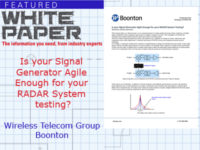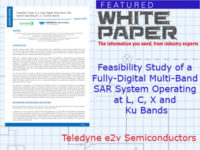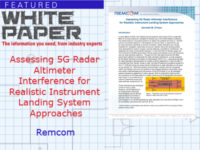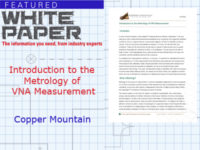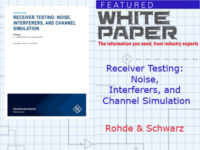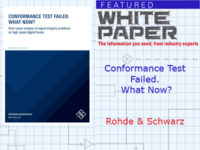Featured White Papers
Feasibility Study of a Fully-Digital Multi-Band SAR System Operating at L, C, X and Ku Bands
August 11, 2022
Assessing 5G Radar Altimeter Interference for Realistic Instrument Landing System Approaches
August 11, 2022
RS_WP_5G_NR-V2X_enhanced_automotive_communications.pdf
August 11, 2022

